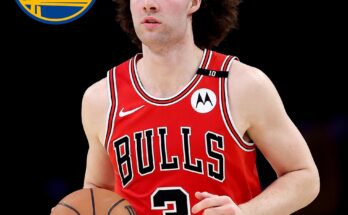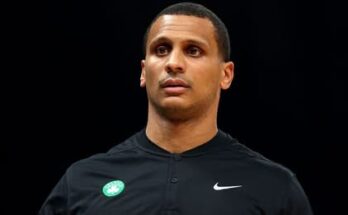Oklahoma DB Gentry Williams Embraces Leadership Role Amid Team Injuries, Energizing Sooners’ Defense
The Oklahoma Sooners have faced significant challenges on the defensive side of the ball this season, with injuries testing the depth and resilience of the unit. Amid these obstacles, one player has stepped up in a meaningful way to provide leadership, stability, and energy: defensive back Gentry Williams. His emergence as a vocal and on-field leader has not only helped fill the void left by sidelined teammates but also invigorated the Sooners’ defense as they navigate a demanding schedule.
Gentry Williams entered the Oklahoma football program with high expectations, known for his athleticism, football IQ, and competitive drive. Over the course of his tenure, he has steadily developed his skills, earning respect from coaches and teammates for his work ethic and commitment. This season, circumstances have thrust Williams into a more prominent role, requiring him to not only perform at a high level but also to guide a defense facing adversity.
Injuries are an inevitable part of football, and the Sooners have not been immune. Key defensive personnel have been sidelined, forcing younger players and backups to take on expanded responsibilities. In such moments, leadership becomes critical, and Williams has risen to the occasion by embracing the challenge. His ability to communicate effectively, organize the secondary, and inspire confidence has helped maintain cohesion within the defense.
Coaching staff members have praised Williams for his maturity and readiness to lead. They note that his preparation, film study habits, and attention to detail set an example for others. His presence on the field is marked by disciplined technique, sound decision-making, and an aggressive approach to disrupting opposing offenses. This combination of attributes makes him a natural fit to assume greater responsibility.
Williams’ leadership extends beyond X’s and O’s. Teammates describe him as a calming influence in the locker room, someone who encourages hard work and maintains a positive attitude even during tough stretches. His willingness to mentor younger players and hold them accountable contributes to a culture of growth and resilience within the defensive unit.
Statistically, Williams has made significant contributions this season, stepping up in coverage, tackling, and pass defense. His ability to read offensive formations and anticipate plays has led to critical interceptions and pass breakups, changing the momentum of games. These impact plays underline his value not just as a leader but as a game-changer on the field.
The Sooners’ defense has benefitted from Williams’ growth, as he provides a steady presence amid rotation changes necessitated by injuries. His versatility allows him to play multiple roles in the secondary, adapting to various defensive schemes and matchups. This flexibility has been instrumental in helping the team weather the storm of injuries and maintain competitive performances.
Williams’ journey to this leadership role was shaped by years of dedication, overcoming obstacles, and continual self-improvement. He has steadily built his skill set, gaining experience through practice reps, game situations, and learning from veteran players. This foundation has prepared him for the challenges of stepping into a more prominent role when the team needed him most.
The broader implications of Williams’ leadership highlight the importance of depth and character in building a successful football program. While star recruits and marquee players often dominate headlines, the contributions of players like Williams—who step up when called upon—are essential to sustained success. His story serves as a reminder that leadership often emerges through perseverance and commitment, especially in times of adversity.
Fans have recognized and appreciated Williams’ impact, rallying around his performances and vocal presence. Social media and fan forums have highlighted his role as a key component of the Sooners’ defense, underscoring his growing reputation as a leader. This support further fuels his motivation and commitment to the team’s goals.
Looking forward, Williams’ leadership is expected to remain vital as the Sooners push through the remainder of the season and prepare for future campaigns. His ability to inspire, communicate, and perform at a high level positions him as a cornerstone of Oklahoma’s defensive efforts. Coaches and teammates alike anticipate that his influence will help shape the defense’s identity and effectiveness moving forward.
Off the field, Williams is also involved in community outreach and team initiatives, reinforcing his role as a leader beyond the gridiron. His engagement with fans, community service, and representation of Oklahoma’s values contribute to the positive culture surrounding the program. This holistic approach to leadership exemplifies the qualities that coaches seek in team captains and role models.
In conclusion, Gentry Williams’ emergence as a leader on the Oklahoma Sooners’ defense amid a challenging injury landscape underscores the resilience and character of both the player and the program. His on-field performance, combined with his vocal leadership and mentorship, has helped stabilize and energize a defense facing significant hurdles. As the Sooners continue their season, Williams’ role as a leader will be crucial in navigating challenges and striving for success, embodying the spirit and determination that define Oklahoma football.



